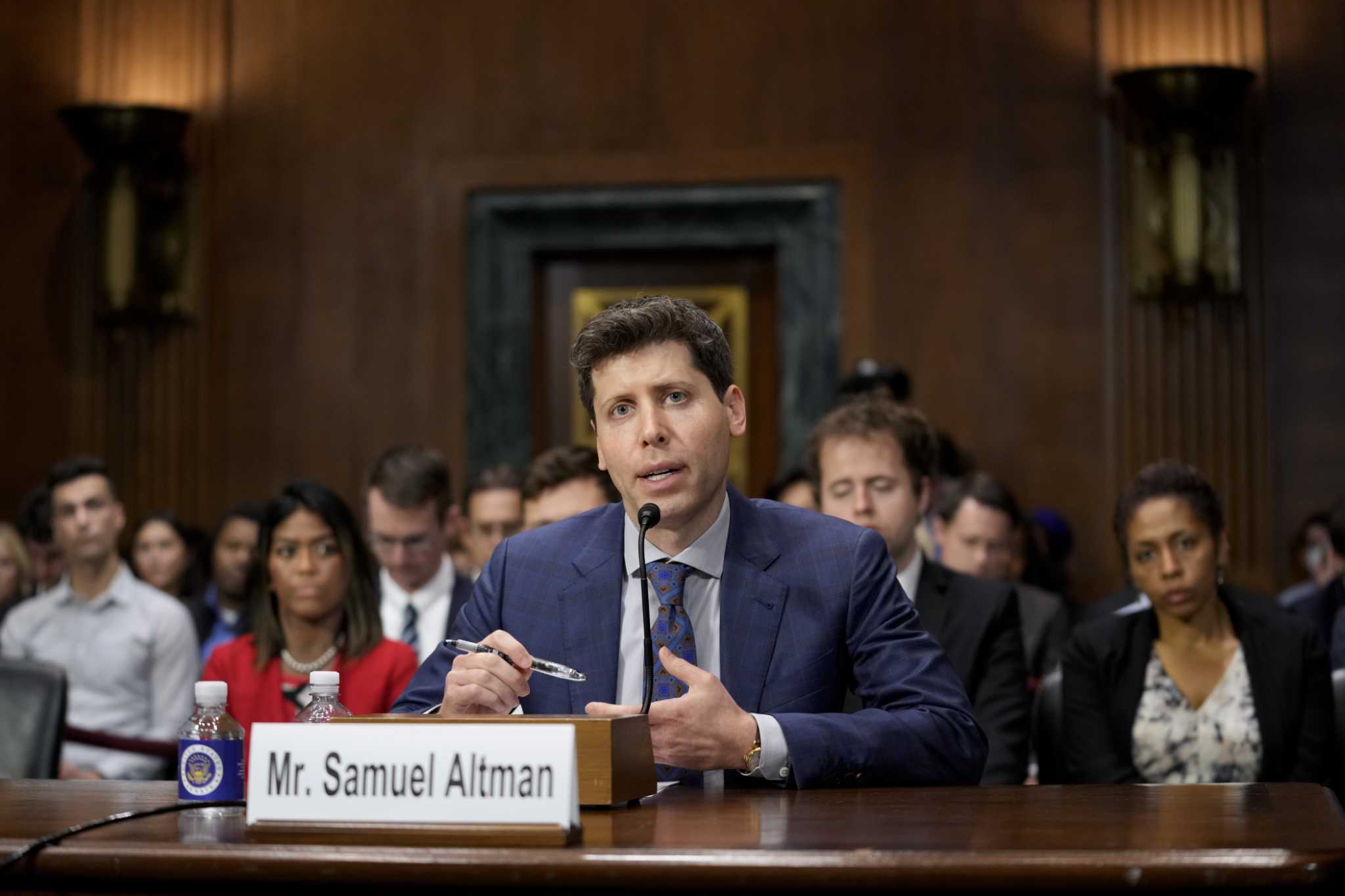ChatGPT Developer OpenAI Under FTC Investigation: Data Privacy And AI Regulation

Table of Contents
The FTC Investigation: What We Know So Far
The FTC's investigation into OpenAI is still ongoing, but several key details have emerged. While the exact timeline remains unclear, the investigation likely began in response to growing concerns about OpenAI's data handling practices and the potential for misuse of personal information by ChatGPT.
-
Alleged Violations of Section 5 of the FTC Act: The FTC's primary concern centers around potential violations of Section 5 of the FTC Act, which prohibits unfair or deceptive acts or practices. This suggests the commission believes OpenAI's practices may have harmed consumers or violated their rights.
-
Data Privacy Issues: The investigation specifically focuses on data privacy issues. Concerns include the potential for unauthorized data collection, the insufficient protection of user data, and the possibility of ChatGPT's outputs revealing sensitive personal information. The FTC is likely scrutinizing OpenAI's data security protocols and whether they adequately protect user information.
-
Potential Penalties: If found in violation, OpenAI could face significant penalties, including hefty fines, mandatory changes to its data handling practices, and even restrictions on its operations. The severity of the penalties will depend on the findings of the investigation.
Data Privacy Concerns in AI Chatbots like ChatGPT
Large language models (LLMs) like ChatGPT present unique data privacy challenges. Their ability to process and generate human-like text relies on vast datasets, raising concerns about the ethical and legal implications of collecting, using, and protecting this data.
-
Data Collection and Usage: ChatGPT collects user input data during interactions, including the prompts, conversations, and responses. This data is used to train and improve the model's performance, but raises concerns about how it is stored, used, and protected.
-
Vulnerabilities to Data Breaches: The sheer volume of data handled by OpenAI creates vulnerabilities to data breaches and unauthorized access. Robust security measures are critical to prevent malicious actors from exploiting these vulnerabilities.
-
Challenges in Anonymization and Security: Anonymizing and securing vast datasets used to train AI models is exceptionally challenging. Even with anonymization techniques, re-identification risks remain, especially with sophisticated data analysis methods.
-
Impact of Biased Data: The datasets used to train LLMs often contain biases, reflecting existing societal inequalities. This can lead to biased outputs from ChatGPT, perpetuating harmful stereotypes and potentially violating user privacy and fairness.
The Need for Robust AI Regulation
The OpenAI FTC investigation underscores the critical need for a comprehensive regulatory framework for AI. The current regulatory landscape is fragmented and struggles to keep pace with the rapid advancements in AI technology.
-
Current Regulatory Gaps: Existing laws and regulations, designed for pre-AI technologies, often fall short in addressing the unique challenges posed by AI, particularly in data privacy and algorithmic transparency.
-
Potential Solutions and Frameworks: A robust regulatory framework should include clear data privacy standards, algorithmic transparency requirements, and robust accountability mechanisms. This would allow users to understand how AI systems operate and hold developers accountable for any harm caused.
-
International Collaboration: Given the global reach of AI, international collaboration is essential to establish shared ethical guidelines and standards. Harmonizing regulations across jurisdictions can prevent regulatory arbitrage and ensure a consistent approach to AI development and deployment.
-
Balancing Innovation and Mitigation: Regulations must strike a balance between fostering innovation and mitigating potential harms. Overly restrictive regulations could stifle progress, while insufficient regulations could lead to widespread misuse and harm.
The Impact on OpenAI and the Future of AI Development
The OpenAI FTC investigation will likely have significant consequences for OpenAI and the broader AI industry.
-
Impact on Reputation and Investor Confidence: The investigation could damage OpenAI's reputation and erode investor confidence. The outcome will significantly influence future funding rounds and partnerships.
-
Influence on Future AI Development Practices: The investigation could lead to changes in OpenAI's data handling practices, increased transparency, and a greater emphasis on ethical considerations in AI development. This could set a precedent for other AI companies.
-
Changes in Data Handling and Transparency: OpenAI may be forced to implement stricter data protection measures, enhance data security protocols, and improve transparency in its data collection and usage practices.
Conclusion
The OpenAI FTC investigation serves as a crucial wake-up call, highlighting the urgent need for robust regulation in the rapidly evolving field of AI. The investigation's focus on data privacy underscores the critical importance of ethical considerations in the development and deployment of powerful language models like ChatGPT. Moving forward, increased transparency, stricter data protection measures, and a proactive regulatory framework are essential to ensure responsible AI development and safeguard user rights. We need to demand accountability and engage in a thoughtful public conversation to shape the future of AI, ensuring that innovation is tempered with ethical responsibility. Stay informed about the developments in the OpenAI FTC investigation and the ongoing discussions around AI regulation; the future of AI depends on it.

Featured Posts
-
 La Landlord Price Gouging Concerns Rise After Recent Fires
Apr 22, 2025
La Landlord Price Gouging Concerns Rise After Recent Fires
Apr 22, 2025 -
 South Sudans Plan For Deportees A Partnership With The United States
Apr 22, 2025
South Sudans Plan For Deportees A Partnership With The United States
Apr 22, 2025 -
 Pneumonia Claims Life Of Pope Francis At 88
Apr 22, 2025
Pneumonia Claims Life Of Pope Francis At 88
Apr 22, 2025 -
 Double Trouble In Hollywood Writers And Actors On Strike
Apr 22, 2025
Double Trouble In Hollywood Writers And Actors On Strike
Apr 22, 2025 -
 Trade War Jitters Impact On Dow Futures And Dollar Value Today
Apr 22, 2025
Trade War Jitters Impact On Dow Futures And Dollar Value Today
Apr 22, 2025
